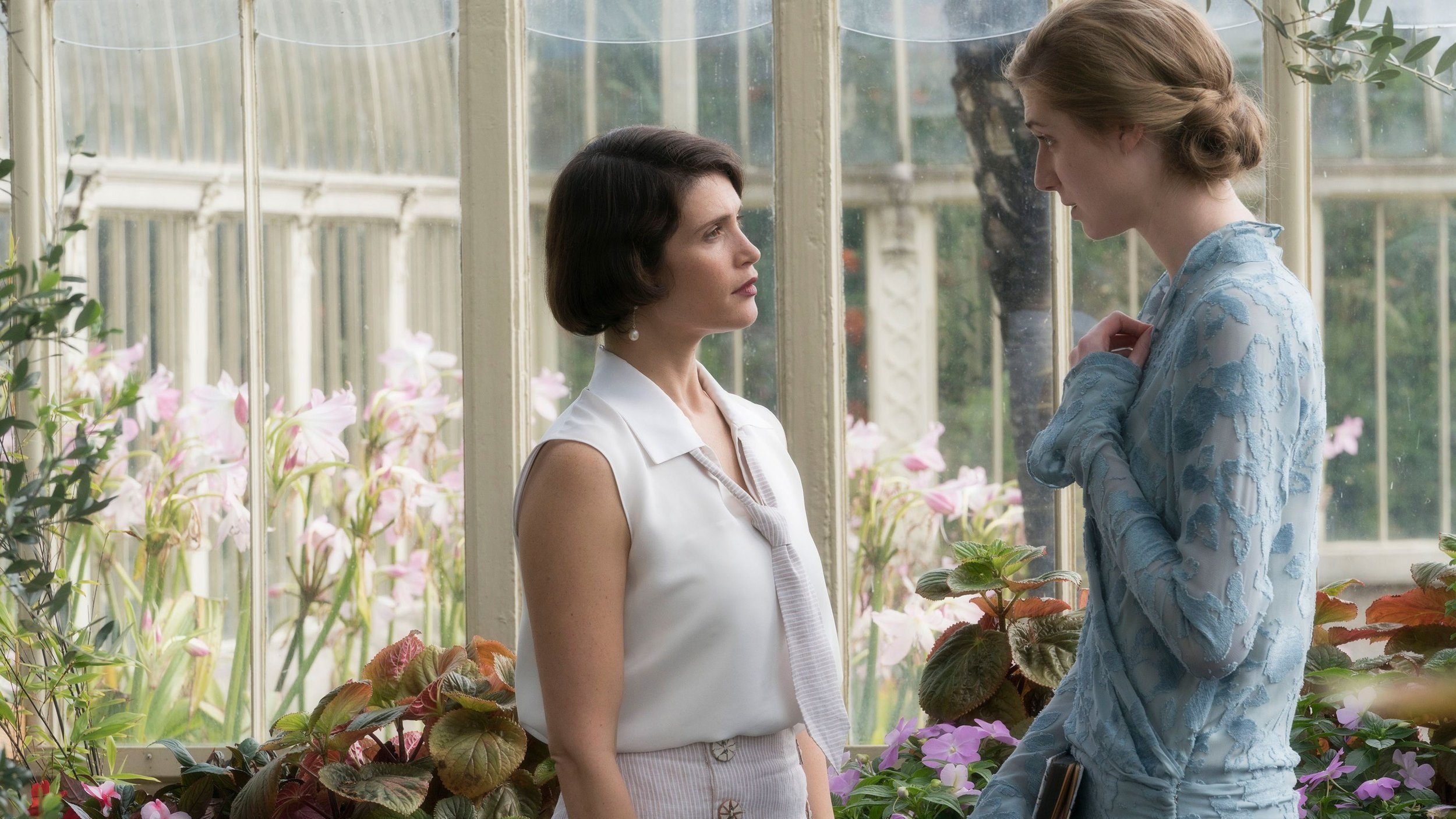Vita & Virginia
A feature film set in the 1920s brings Vita Sackville-West and Virginia Woolf to the screen but fails to realise its potential.
Gemma & Elizabeth
That Vita & Virginia should be such a huge disappointment comes as a surprise. In 1997 that fine actress Eileen Atkins wrote a screenplay based on Virginia Woolf’s novel Mrs Dalloway and carried it off splendidly and earlier, in 1992, she had created a two-hander for the stage drawing on the correspondence between Woolf and her lover Vita Sackville-West. This new film derives from the play and Atkins has contributed to the opening up of that material by sharing the writing credit with its director Chanya Button. On the face of it, this was a work which could be approached with confidence, a welcome addition to the many books written about Woolf and the Bloomsbury Group and to TV pieces about them. At the same time, it would offer a full-scale period piece in contrast to 2002’s The Hours, that screen adaptation of Michael Cunningham’s novel in which only one of three threads was concerned with Virginia Woolf herself as played by Nicole Kidman.
Button’s film places at its centre the lesbian relationship between the two writers and fields two interesting actresses, Gemma Arterton (also an executive producer) as Vita and Elizabeth Debicki as Virginia. Their respective husbands, the supportive Leonard Woolf and the career diplomat Harold Nicholson, are played by Rupert Penry-Jones and Peter Ferdinando and Vita & Virginia is at its best when contrasting the differing sexual needs and interests of the two women alongside Virginia’s absolute awareness of what Leonard meant to her even as she found physical passion with Vita. Also well brought out is another contrast, that between the bohemian world of the Bloomsbury set and Vita’s aristocratic background which, despite shared sexual freedoms, stood for a fervently held belief in exercising discretion.
That said, however, in all other respects this new film fails to work. Dialogue that might have seemed convincing on stage sounds artificial here regardless of the fact that many of the words are taken directly from what the couple wrote in their letters. Adding to the lack of conviction is Button’s notion of escaping the clichés of today’s standard period films by inserting offbeat touches. In point of fact, it is not that novel to show the lead actresses speak direct to camera the words of the letters that are being written and this device works well enough. But to invite Isobel Waller-Bridge to compose a distractingly modern music score undermines belief in what we are seeing and the occasional stylised flourish is even more distancing (at one point a wooden floor sprouts ivy and a mental breakdown suffered by Virginia is illustrated by an imagined attack on her by birds which does nothing so much as make us think of Alfred Hitchcock).
Consider the film’s subsidiary characters and further faults immediately emerge. Those familiar with the Bloomsbury Group will need no introduction to Clive Bell, Vanessa Bell and Duncan Grant, but even they may be asking who Geoffrey Scott and Dorothy Wellesley are when they suddenly appear. In all cases underdeveloped as characters, they will confuse many viewers who may also wonder about the identity of one Violet mentioned in a passing line (much later a second reference identifies her as Violet Trefusis). That is all too characteristic of a film that pays little heed to anyone relatively unfamiliar with the people portrayed here. Vita & Virginia has its moments but, more arthouse than mainstream, it is not audience friendly.
MANSEL STIMPSON
Cast: Gemma Arterton, Elizabeth Debicki, Rupert Penry-Jones, Peter Ferdinando, Gethin Anthony, Emerald Fennell, Adam Gillen, Karla Crome, Rory Fleck Byrne, Nathan Stewart-Jarrett, Isabella Rossellini.
Dir Chanya Button, Pro Evangelo Kioussis and Katie Holly, Screenplay Eileen Atkins and Chanya Button, from the play by Eileen Atkins, Ph Carlos de Carvalho, Pro Des Noam Piper, Ed Mark Trend, Music Isobel Waller-Bridge, Costumes Lorna Marie Mugan.
Piccadilly Pictures/SQN Capital/Protagonist Pictures/Mirror Productions/Blinder Films-Thunderbird Releasing.
110 mins. UK/Ireland. 2018. Rel: 5 July 2019. Cert. 12A.


